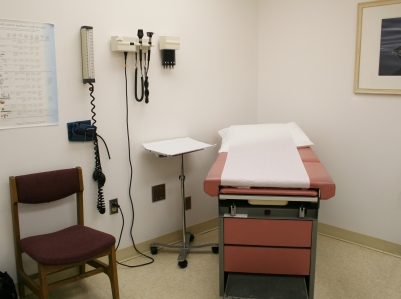
|
How to get the most out of your Visit
Have you ever been to a doctor’s appointment and leave wondering what happened? No one likes to feel as though you’ve wasted your time and money. The list below describes several ideas that will help you get the most out of your visit. |
Before the appointment
Know your body. You are the best source for monitoring changes in your body, so learn to notice changes. Do not actively search for problems, but know how to identify problems versus normal events. Consultation with your provider will help you understand the difference.
Keep a journal. I cannot stress this point enough. Having a journal of some basic information will help your Physician Assistant tremendously. An effective journal can help your healthcare provider diagnose and prescribe much more accurately because they have specific data about your illness when it is flared up. Let’s face it, symptoms like to hide when you are in the doctor’s office.
We have put together a journal entry form that uses the questions your provider will ask. Fill one out for each episode and bring copies to your appointment. Having the answers to these will help streamline your appointment.
Make a list of questions and concerns. Your provider is a patient educator. They are very good at explaining medical concepts in terms that you can understand. They are there to help you. Make a list of questions and concerns to ask them and take it with you, because we all become very forgetful in the doctor’s office. This is very a helpful tool for both of you. Don’t feel bad about reading straight from your paper. It is better to ask face to face than over the phone at 3am in pain.
Monitor the toilet. This may sound gross, but for certain problems you will be asked about any weird colors, consistencies, or the presence of blood. Definitive answers are always better than “maybe” or “I think so”.
During the appointment
Verbalize the goal of your visit. You will usually get asked this question in the form of, “What brings you here today”. Having a goal in mind and expressing it will help set the stage for the appointment and assure that your problem gets properly resolved.
DO NOT demand medications. Medications change frequently. There may be a better treatment available than what you are used to. Your provider will be aware of new medications as well as complications and side effects with your current medications. Trust the advice of your provider. If you have a drug preference, ask them for their opinion. Furthermore, antibiotics are not a magic pill that cures all. Improper use can lead to many complications including more resilient bacteria, killing off beneficial bacteria, and developing insensitivity to that type of antibiotic.
Take notes. Appointments go by in a flash. The provider will be throwing a lot of information your way. Be sure that you jot down the main points, the plan of action, and any words or procedures that you don’t understand. This will help you to remember and follow the treatment plan and it will help you to feel informed. It can also serve as a useful tool to aid in home research.
Bring a Friend. There is nothing like a second set of ears to help get the most out of your visit. Grab a friend or family member that you trust and have them take notes as well. They may hear or understand something that you didn’t. They may also bring up pertinent questions that you hadn’t thought of.
Be honest, don’t be embarrassed. Developing an accurate plan of action and avoiding complications requires that you are completely honest with your physician assistant. Don’t worry about being embarrassed, they’ve seen it all.
After the appointment
Learn the lingo. Being able to properly describe what is going on in your body is key to effective patient-provider communication and more effective visits. If you have been diagnosed with a specific disease then do a little research on it. Knowing the vocabulary of your illness will foster better understanding and communication with your healthcare provider.
Educate yourself. We live in an information age. It is important to play an active role in your healthcare and to educate yourself to improve your quality of health and wellbeing; however, the internet is full of incorrect information. Use reputable sources of information. You would not ask a surgeon how to fix your transmission. We have put together a list of health resources in the Medical Resources section to insure that you educate yourself with trusted sources.
Follow treatment plan. This may seem like a no-brainer, but many don’t do it. Following your healthcare provider’s treatment plan will either correct your illness or will shed light on the new path to take. Ignoring their advice or forgetting to do as you were instructed wastes everyone’s time and money. It will leave you right where you began with no answers. |
